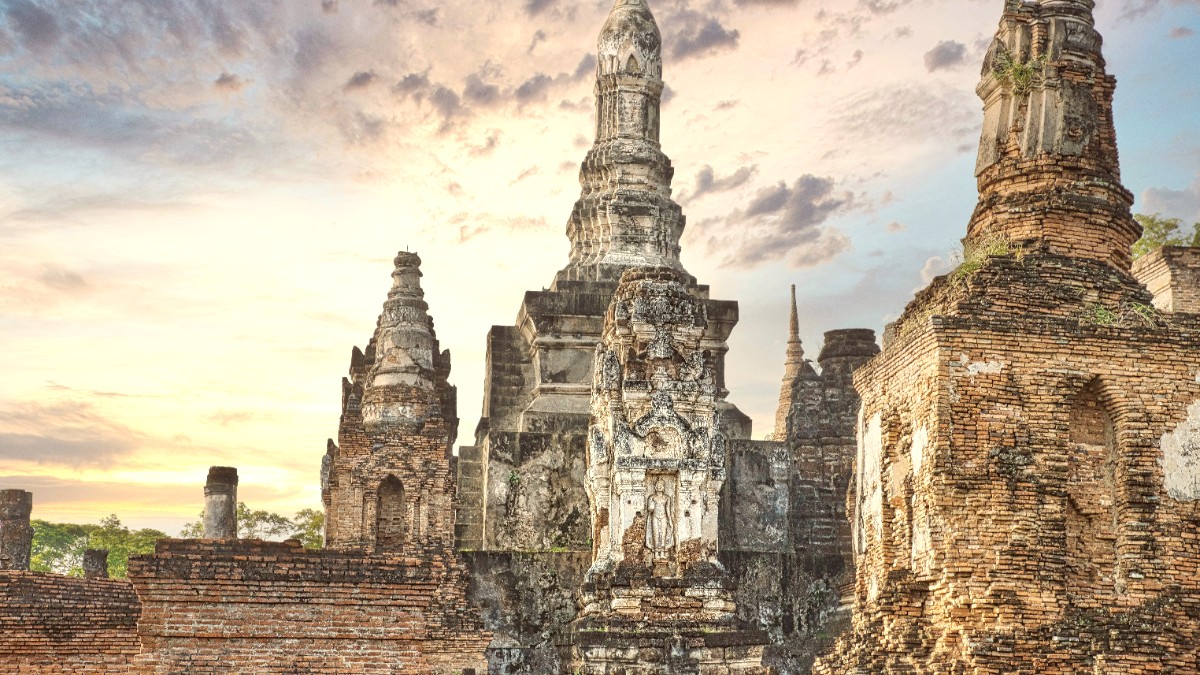
Sukhothai Province, Thailand
Sukhothai Historical Park: UNESCO World Heritage site, protected by Fine Arts Department. Conservation focuses on structures, water systems, and environment.
Ramkhamhaeng National Park: Designated national park protecting forests, wildlife, and waterfalls. Stay on marked trails, dispose of litter properly.
Waste management remains a challenge. Minimize personal waste. Use Reusable products to avoid single-use plastics.
Mindful practices help maintain the region's natural resources and ecological balance.
Water resources can be strained. Mindful water use is a good practice. Take shorter showers, reuse towels, turn off taps.
Offset flight emissions through international carbon offset programs like Terrapass. They invest in projects that reduce greenhouse gas emissions.
Sukhothai Historical Park protects ancient structures. Local communities preserve traditional crafts, art forms, and cultural practices.
Maintain a quiet and respectful demeanor inside temples. Remove shoes before entering temple buildings.
Seek out local artisan shops or community cooperatives. Purchase directly from producers for fair compensation. Consider sites like The Rainforest Site (GreaterGood) for ethical purchases.
Avoid mass-produced souvenirs not benefiting local communities. Look for genuine handmade items, supporting direct economic contribution.
Your choices contribute directly to the local economy and environment. Choose wisely for a positive footprint.
Supporting local businesses and engaging with community initiatives directly benefits Sukhothai's residents.
Prioritize staying at locally-owned guesthouses. Eat at local restaurants and street stalls. Hire local guides or drivers.
Ban Na Ton Chan Homestay Village: An excellent example where tourist spending directly benefits local families. Helps preserve traditional ways of life.
Seek out ethical shopping options where you can purchase directly from producers. This fair compensation for their work.
Avoid engaging in activities that might contribute to exploitation or harm to individuals or communities. Awareness is .
If you wish to contribute, consider donating to established and reputable local charities. This ensures lasting, positive impact.
Avoid giving money to beggars, especially children. Direct aid often does not solve underlying issues.
Your hotel or guesthouse may recommend specific local organizations that contribute effectively to the community.
Your choices have a direct impact on the environment and local people. Practice responsible tourism at all times.
Strive to leave a positive footprint, enriching your experience and benefiting the destination.